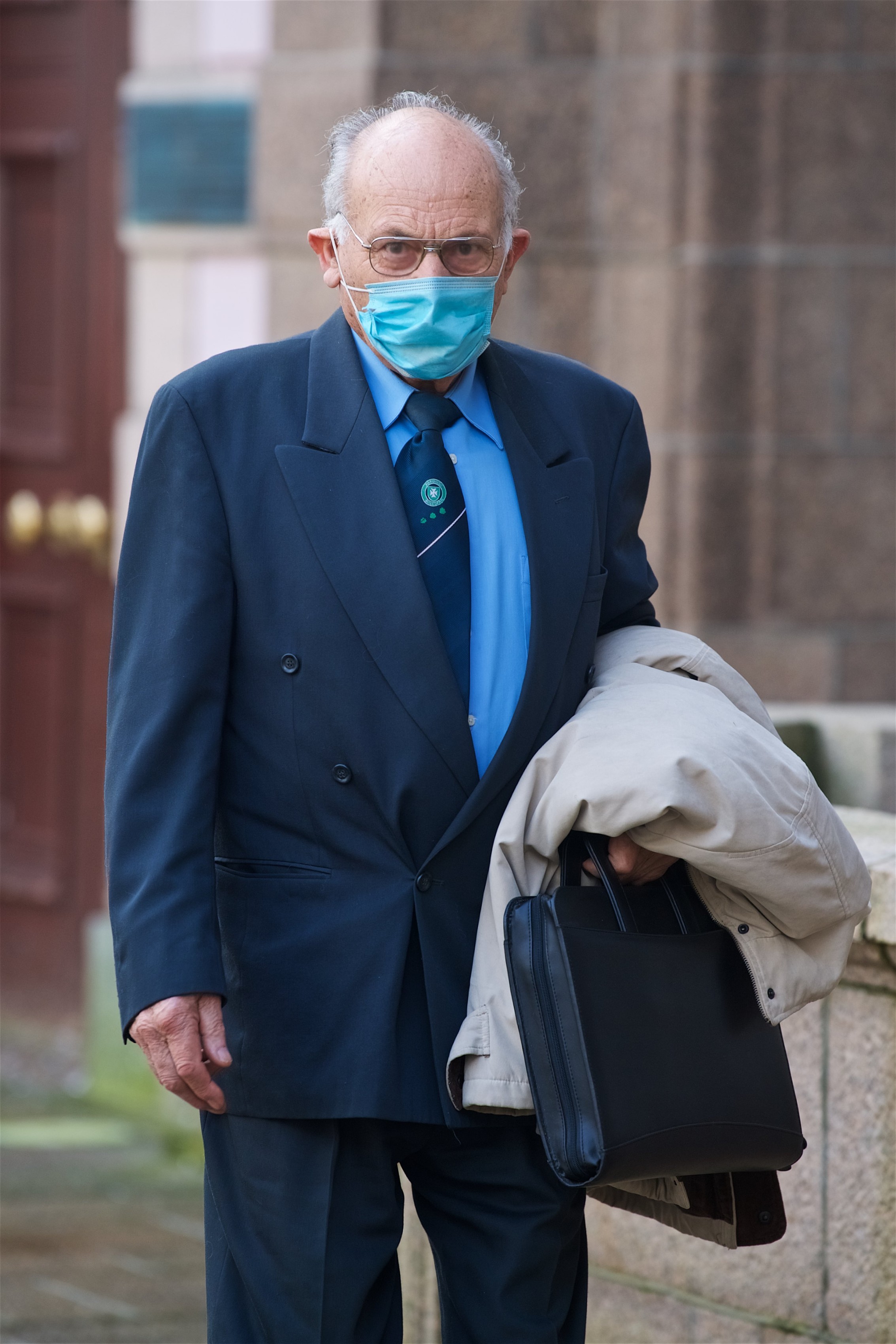The parish’s two Procureurs du Bien Public, Stephen Hewlett and Michel Larose, and Mr Taylor, attended the hearing, which was called to decide whether they had ‘fallen short’ of their oaths of office by initially using parish funds to cover Mr Taylor’s legal expenses.
The civil hearing, instigated by the Attorney General as part of the Royal Court’s supervisory jurisdiction in parish matters, also considered whether the Constable’s conviction represented a failure to meet the standards expected of him and the oath of office he took when he was elected in 2014 and 2018.
At the conclusion of the two-day hearing, judgment was reserved by Commissioner Sir William Bailhache, presiding, with Jurats Jane Ronge, Charles Blampied and Jerry Ramsden sitting.
Mr Taylor was found guilty of one count of dangerous driving by Relief Magistrate Sarah Fitz on 20 August 2020, after driving his car at slow speed into a marshal manning a road closure for a cycle race in Trinity. The incident took place on 2 June 2019 in Rue Bechet ès Cats, close to the parish boundary with St John.

A total of £7,431, authorised by Mr Hewlett and Mr Larose, was paid by the parish to cover Mr Taylor’s legal expenses, although the money was subsequently reimbursed by Mr Taylor.
On the second day of the hearing, Solicitor General Matthew Jowitt said a series of questions had been raised by what he described as the ‘near-total and unquestioning loyalty’ shown by the Procureurs to Mr Taylor.
‘Did this loyalty lead them to accept that he [Mr Taylor] was acting in an official capacity, and to agree to use parish funds when they should not have done, and not to seek legal guidance in spite of clear arguments by the rector and churchwardens that they should do so?’ Mr Jowitt asked.
The concerns raised by Rector Beverley Sproats and wardens Nick Crocker and Stuart Langhorn were described as ‘entirely reasonable’ by Mr Jowitt, who said Mr Hewlett had seen their input as an affront to his authority and described them as ‘rocking the boat’. Mr Jowitt also referred to Mr Hewlett having described the original case against Mr Taylor as a ‘witch-hunt’.
Sir William raised the issue of Mr Taylor’s continuing protestations of innocence, which included a comment to the JEP on the eve of the hearing, and questioned whether this represented a challenge to the rule of law and the decision of the Relief Magistrate.
Mr Jowitt said that Mr Taylor had not appealed against his conviction, adding that: ‘Respect for institutions of justice is an important facet of holding public office and this shows, if not contempt, a disinclination to accept the properly reached decisions of a court of law.’
Advocate David Steenson, acting for Mr Taylor, said that the question over the misuse of parish funds had involved a misjudgment, as the Procureurs should have obtained written confirmation of Mr Taylor’s verbal guarantee that he would make up any shortfall.
‘We are talking about people who are trying to do their best, having put themselves forward to assist society and they end up in this court with their conduct being considered in the finest detail when they have acted in good faith,’ he said.
Advocate Steenson asserted that the court did not have jurisdiction to make rulings on officials’ fitness for office, pointing to a lack of clear guidance or agreed parameters on what conduct would constitute a breach of their oaths of office.
‘This court cannot sensibly get involved in every issue that a parish official might have – you would never get anything else done,’ he said. ‘It does not have jurisdiction to deal with what amounts to, at most, a misjudgment.’
Advocate Steenson said that Mr Taylor faced the prospect of ‘double jeopardy’ in having been convicted of a criminal offence by the Magistrate’s Court and then facing a civil hearing in the Royal Court.
Advocate Nina Benest, representing Mr Larose, said her client was ‘100% behind the parish’, and that he had given 47 years’ service to St John.
There was no formal training or handbook for Procureurs, she said, with anyone holding the position ‘left to navigate the course of their role with their own moral compass’. Asked by Sir William whether she felt there should be training, she agreed that there should.
Shortly before announcing that the court’s judgment would be delivered at a future date, Sir William indicated that judgment for the Procureurs was likely to take the form of ‘words of advice’, but did not hint at the likely ruling for Mr Taylor.






